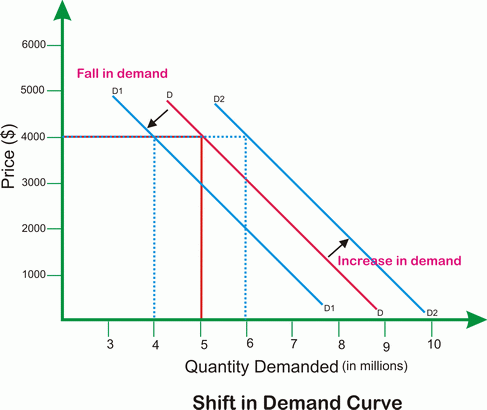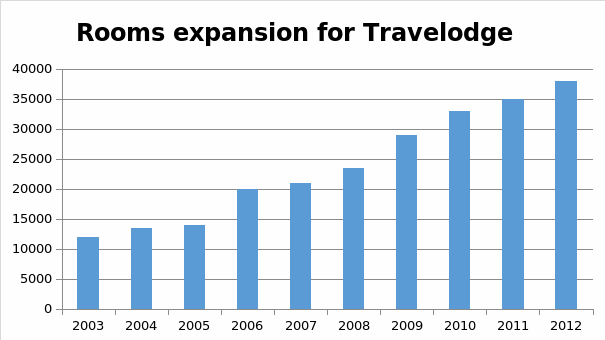Introduction
The recent global economic recession was a big blow to the hospitality industry as a whole. The industry was among the hardest hit as the cost of living went up. Consumers were compelled to scale down on luxury spending (Dines, 2008).
Currently, hotel operators are rethinking on new strategies that will enable them bear the brunt of economic meltdown without terminating their business operations. Nonetheless, recession aftermath was apparently a landmark opportunity for budget hotels to experience growth even as the mid-range hotels were poorly performing (MKG, 2009).
Key Issues
According to Wood (1992, p. 297), the economy and budget hotels facilities as well as their products are growing in popularity while demand and supply is increasing. They are likely to continue performing well in the hospitality industry due to the favorable demand for their products.
A research study carried out by a leading hotel consultant in the UK, Melvin Gold, concluded that the budget hotel is growing at the rate of 10% annually and the trend is expected to continue in the next 20 years (Melvin, 2008). This report will analyze Travelodge hotel which was established within the chain of budget hotels.
Travelodge was the first budget hotel brand to be introduced in the UK hospitality industry. The hotel brand has undergone rapid growth over the past few years. An economic survey in December 2008 named it as the fasted growing hotel firm in the UK, Spain and Ireland (Travelodge, 2009). The hotel brand operates an estimated 368 hotels with a total of 26,148 rooms.
Through its rigorous marketing approach, Travelodge enjoys 98% brand recognition in UK hotel market and worldwide with their website ranked as the most visited travel website in the recent past (Travelodge, 2009). Furthermore, the hotel has a database of two million regular subscribers, with over 87% reservations being processed electronically. Travelodge leads the budget hotels chain in terms of pricing. This has made the hotel to stay ahead of competition (Melvin, 2008).
Demand
The demand of the hotel rooms is driven by both the level of business operations and volume of tour travel or incoming visitors (Hailin, 2002, p.455). The two kinds of demand factors vary depending on the economy.

The above figure shows how price of rooms affect demand (Loannides & Debbage 1998, p. 222).
The Price of Good
Due to the devastating effects of global recession, the demand has shifted from high priced hotels to budget hotels (MKG, 2009) as shown in Figure II. Travelodge is quick to tap into the open opportunities presented by the economy. It has lowered its prices to achieve a competitive edge in the growing hotel industry. According to Loannides and Debbage (1998 p. 212), price is an important determinant of demand. As price goes down, demand rises. Travelodge sold over two million rooms in 2008 at a price not more than 29 pounds.
The Price of Goods (Substitutes/Complements)
In economics, the price of other related goods affects demand. Travelodge is not a monopoly and similar budget hotels offer services that are almost similar. As a strategy to avoid the negative effects of price of other related goods to the demand of their rooms, Travelodge provides a retail-style checking program to their potential customers.
This is an electronic browser that allows customers to compare Travelodge rates with the rates of other similar budget hotels. This strategy has proved to be successful in attracting customers (Jeffrey et al., 2002 74).
Income
As stated above, the recent global recession has affected consumers’ income negatively. Business operators have been quick to set up budget hotels, and competition of the budget hotels has affected demand of Travelodge negatively (Jeffrey et al., 2002, p. 73). The main competitors of Travelodge are similar low cost hotels like Premier Inn which offer lodging rooms (Melvin, 2008).
To beat the competition as part of increasing the demand of its hotel rooms, Travelodge has adopted several innovative strategies to makes its services more appealing and hence gain a larger market share in hotel industry (MKG, 2009). They use pricing as a marketing strategy and it has been classified as the cheapest budget hotel chain with high quality services.
Population
Changes in population structure are an important factors to consider in determining consumer behavior and how it affects demand (Hailin, 2002, p.455).In a few years to come most of the population will be composed of people between the age of 60 or 65, who are predicted to stick to their holiday patterns (Melvin, 2008). Travelodge has embarked on a strategy to provide quality and different services to meet the changing consumer needs (Melvin, 2008).
Preference
The rising cost of living has increased the demand for budget as consumers prefer them to high priced hotels. The change in preference of low priced hotels has not changed the demand for quality. Travelodge provides quality and meet individual preference by offering them a choice to order whatever provisions they need during their stay at a lower price (MKG, 2009).
Supply
Travelodge has an underway expansion plan to increase supply of budget rooms to meet the growing demand. In 2008, 3,844 new rooms were opened for business, while additional 2,500 rooms were added between 2009 and 2010 (Travelodge, 2009). This expansion trend is expected to continue since the hotel’s strategic projection is to run a total of 70,000 rooms by 2020.
This strategy will see the hotel assume a 10% market share in the UK market alone (MKG, 2009). To meet the projected supply, the hotel plans to add 3,000 rooms annually. The initial expansion plan targeted at increasing its supply volume to meet the projected demand ahead of 2012 Olympic Games (Melvin, 2008).

The rapid growth of budget hotels demand will definitely demand an equal increase in supply of its bed and breakfast facilities. As a result, Budget hotels will have to devise better expansion strategies so that they can secure a bigger share in the projected 225,000 rooms by 2017 (Melvin, 2009). On the same note, supply of goods and services is affected by several factors. For Travelodge, factors that may hinder its supply volume can only be counteracted by instituting strategic plan as outlined in the section below.
The Price of the Good
The price of good and services affect supply where an increase will affect the supply curve positively and vice versa ceteris palibus. The current economic situation are not favorable to increase the price of rooms, therefore, the initiative to lower operational costs has been catered for by Travelodge. The hotel is currently applying a ‘no frill’ strategy during the process of delivery. It attains this by eliminating unnecessary expenses like hairdryers and expensive toiletries.
However, through a pre-stay checklist that is available online, customers can request the extra provisions at an extra cost (Travelodge, 2009). This strategy reduces operational costs and as a result, the hotel is able to lower its prices thus catching a niche in the competitive market (PWC, 2008).
The Price of Factors of Production
In economics, the cost of production is known to affect supply (PWC, 2008). Travelodge has embarked on an expansion program which may equally turn out to be a very costly venture if not managed well. Similarly, high cost of production hinders supply. In order to overcome this hindrance in supply, it is imperative for this hotel chain to adopt and implement organic growth in order to attain the expected results.
The Price of Related Goods
According to Melvin (2008) budgets hotels supply will be affected by the price of other mid-market hotels that are expected to emerge in the future. Hotels such as Whitbread, Hilton and Premium are on a similar mission to increase supply. Thus has made the price or prime land to rise thus increasing the cost of production (Melvin 2008). Accordingly, most of the hotels will adopt franchises model to cut cost of supply.
Expected Future Prices
The supply of budget hotels will continue to rise as long as demand is present. However, the saturation in supply as well as the expected saturation in demand will decrease the price of rooms. This will affect supply negatively as some hotels will go out of business in the long run (Travelodge, 2009).
The Number of Suppliers
The rising demand of budget hotels all over the world has attracted many hotel operators to invest in the same. This has created competition for existing extension opportunities as many suppliers rush to cut a niche in the market. Travelodge has adapted a strategy that is economical and increases it strategic positioning in the market (Travelodge, 2009).
Technology
Furthermore, Travelodge has embraced technological innovation which affects the business. As a strategy to increase its presence in reaching out for more client, it has devised a relatively user friendly website. Customers can book and pay online. This has largely improved service delivery and in-house efficiency (MKG, 2008).
Economic Problem 1 with Possible Solution
Despite the current and the projected growth of the budget hotels, there are myriad challenges to be faced in the future and only the fittest will survive. In spite of the slow pace of recovery from recession, consumers might be shying away from luxury spending and possibly opt for the upcoming small independent hotels. According to Hailin (2002, p.457), budget hotels will face competition from the upcoming bed and breakfast establishment which might offer cheaper rates.
In a competitive market only the best can survive in the long run, because as new entrants come in some will be faced out at zero economic profit. Travelodge has employed several marketing strategies to beat competition, and Melvin (2009 p. 44) projects that the future is bright for the hotel. The report further projects the future demand to grow though a slightly lower than the one experienced currently. They should embrace strategies to face the future economic challenges.
Economic Problem 2 with Possible Solution
Globalization and the changing technological innovations will increase competition among budget hotels all over the world. To gain advantage amidst the competition, the suppliers need to increase use of technology in order to reach a wider market. The use of websites and other digital communication will increase the demand of a particular product over the other as consumers are able to obtain information to make choices. Firms should respond by sourcing staffs who are conversant with ICT skills ().
Conclusion
Hotel operators who are investing in budget hotels in the UK are making a wise decision. The industry is promising since the demand is high as people are trying to cut down on spending. They should however embrace themselves for the future since as demand becomes saturated some hotels will be forced to close down. However, the new threat is the upcoming small bed and breakfast hotels which are rapidly growing.
References
Dines, N. 2008, The Effect of the Recession on the Hotel Sector. Web.
Hailin Q. et al. 2002, ‘Simultaneous equations model of the hotel room supply and demand in Hong Kong’. Web.
Jeffrey, D. et al. 2002. ‘What Makes for a Successful Hotel? Insights on Hotel.
Loannides, D. & Debbage K. G. 1998, The economic geography of tourist industry: a supply–side analysis, New York: Rout ledge.
Melvin Gold Consulting Ltd 2008, The Quantification of serviced accommodation supply in the United Kingdom and the consideration of related issues. Web.
MKG Group 2009, Budget Economy hotels: A wise choice. Web.
Price Waterhouse Coopers (PWC). 2008. Hotels: managing in a downturn. Web.
Travelodge 2009, Travelodge development funding brochure. Web.
Wood, R. C. 1992, ‘Hospitality industry labor trends: British and international experience’, Tourism management. Web.